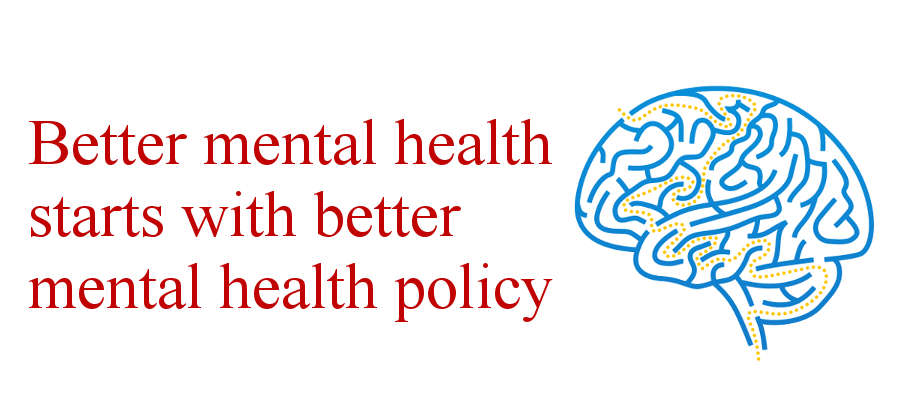
Since the start of February, the Government has been working pretty hard to sell the idea that the recent mental health reforms in Australia are good for us. Thousands of people emailed and wrote letters to our politicians, calling on the cuts to psychological services to be reversed. Naturally, our elected representatives have replied with form letters. That part isn’t surprising, but the content of their replies is. What they reveal is that the Government is confused about the people who use the Better Access program and that the evidence from large-scale evaluation research is being plainly distorted to rationalise cost-cutting.
A couple of days ago, a concerned member of the general public sent me a copy of a stock standard reply they got from the Minister for Health, Tanya Plibersek. To give you a sense of the confusion and spin we are seeing from the Government I’ll show you a few quotations from that letter, adding my reflections afterward.
Schemes like the Better Access initiative are in place to help people who find themselves in some really difficult circumstances.
This short quote shows that the Minister for Health disagrees with the Minister for Mental Health about who the program was designed for. Mark Butler (the Minister for Mental Health) has repeatedly mischaracterised the Better Access program as catering to mild conditions, much like Ian Hickie and his close colleagues who have played down the needs of people who seek psychological services as being ‘the worried well’ who have ‘garden variety’ problems. Butler has relied on such minimising claims to justify cutting services down below the minimum treatment guidelines of 15 to 20 sessions. Tanya Plibersek (the Minister for Health) reveals in this letter that Butler is wrong – and she is correct to say so. Since it’s inception, the goal of the Better Access program has ALWAYS been to expand access to mental health care across the board. Try doing a separate search for each of the key-words ‘mild’, ‘moderate’ and ‘severe’ on the COAG statement for Better Access to see what I mean. You get a prize if you find any reference at all to ‘mild’ levels of distress.
But Plibersek’s accuracy doesn’t stretch much further than that initial statement. She follows on from there to give her interpretation of the recent Better Access evaluation:
I’ll first explain that there was a large evaluation completed of the Better Access initiative, which found that disadvantaged groups in our society (e.g., Indigenous Australians, people in rural and regional areas) weren’t accessing or couldn’t access this scheme as well as other groups.
The large evaluation that she refers to actually demonstrated that the Better Access program expanded access to mental health care considerably across ALL groups, with the highest growth in uptake being in traditionally under-served populations. This includes all of the groups she mentioned. To give you a sense of the magnitude of this increase in uptake, Butler himself stated that as a result of the Better Access program there had been “an increase in treatment rates [in mental health] from 35% in 2007 to around 46% in 2010”. It is also noteworthy that at the meeting where that quotation is from, the Minister highlighted the importance of considering ways to improve Indigenous access to the Better Access program. It is very difficult to imagine how cutting the Better Access program could improve rates of Indigenous access or regional access to psychological services.
Plibersek then goes on to refer to a statistic that Butler has repeatedly used to defend the cuts, but which as we have shown previously, is not an accurate way to interpret the figures.
The evaluation of Better Access showed the majority (87%) of current Better Access users receive between one and ten sessions, and will be unaffected by the new cap.
First, the Better Access evaluation showed that in over 80% of cases, the people receiving psychological services had experienced highly severe to extremely severe levels of distress. Now if you look at the evidence from controlled research, about how many treatment sessions are needed to show significant improvement, the results are clear that 15 to 20 appointments of the most brief psychological interventions (CBT and IPT) should be offered to patients with even ‘mild’ or ‘moderate’ levels of symptomatic distress. What this indicates is that many of those 87% of patients who only access 1 to 10 sessions of Medicare-funded services are pulling out of treatment early. These low figures of use do not mean that a person only needs 10 sessions of treatment. On the contrary, not only are there a lot of people who DO pull out of treatment prematurely (and return saying so!), but also, some go on to fund part of their own treatment privately – often because they are waiting to get a GP appointment to renew the referral. If we only offer people ten sessions, the research shows that they will get cut off from treatment early. Not allowing people to access further treatment for their mental health condition puts lives at risk, particularly for those who are most in need and least able to afford their own private care.
For people that do require more than 10 allied mental health services, they are still eligible for up to 50 Medicare Benefits Schedule consultant psychiatrist services each year
Plibersek’s reference to psychiatric services as a replacement for psychological services is extremely problematic. There is a clear difference in emphasis between these two professions, with the former concentrating more on biomedical treatment and the latter concentrating on psychosocial treatment. To argue that a highly distressed individual with a mental health disorder can simply pick up therapy with a new practitioner after 10 sessions using a completely different treatment approach, without there being a significant gap in care, is bordering on the ridiculous. We need both psychiatrists and psychologists, as well as a host of other mental health professionals, to meet the needs of society. There are just far too few psychiatrists in any case, to meet the massive need for services. Since these cuts, we have seen waiting lists to see a psychiatrist in the metropolitan area span out beyond 6 months, so it is difficult to comprehend how this will improve mental health care for people living in rural, regional and remote parts of Australia.
Finally, Plibersek closes her letter with a warm expression of support, advising the recipient to talk to their GP about treatment options:
If you think you will need to access more sessions, I encourage you to speak to the GP who refers you to mental health services and professionals. GPs liaise with mental health professionals and counsellors so that patients can achieve the best possible services and outcomes. There is a lot of information out there and it can be confusing, but I really recommend discussing your whole Mental Health Treatment Plan with your GP.
Sounds great doesn’t it? But there’s one major problem. The Government has cut psychological services. The fine-print says that once you use up your appointments, there are no other options. And since the Government cut the funding for GP referral items, referral rates are falling away too. In other words, the GPs just do not have any other realistic options to deliver psychological treatment to these patients, particularly ordinary Australians who end up diagnosed with a mental health disorder, but get told that they can’t access the alterantive ATAPS program where the Government is now diverting a lot of the funds.
Please note though, that Plibersek is just repeating all of the justifications that other politicians have been saying, primarily the Minister for Mental Health. My point in displaying this publicly is to make the spin coming from our Government reasonably clear. There is no good way to dress up these cuts, so for the sake of sanity, we’re asking the Government to show some honesty. If the cuts were legitimate in the first place, why change the system to add another 6 sessions? If the cuts were inappropriate, why are the added sessions only temporary? You can’t have it both ways.
Want to help?
Oppose the cuts to psychological services by signing our petition at at CommunityRun and Change.org. You can also join in discusison about this important issue on our Facebook Group.
If you would like to email your concerns to a politician, you might start by taking this directly to Prime Minister Julia Gillard: http://www.pm.gov.au/contact-your-pm/. You can also send an eail to the Mark Butler, the Minister for Mental Health, or Concetta Fierravanti-Wells, the Shadow Minister for Mental Health, or Senator Penny Wright, senator for The Greens on Mental Health. Make your message loud and clear – ten sessions is not enough. Every voice makes a difference!
Your comments are welcome below


